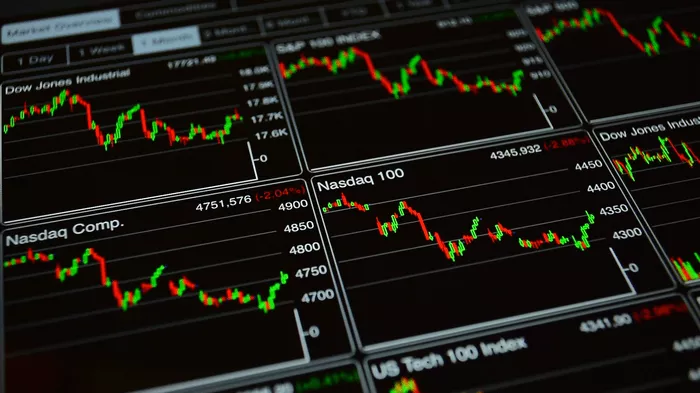Asian stocks faced significant losses on Friday, as investor sentiment was weighed down by mounting concerns over U.S. tariffs and disappointing corporate earnings signals. Hong Kong’s stock market saw heavy selling, with its technology sector falling nearly 3% after a recent rally. Stocks in mainland China, Indonesia, and Taiwan also retreated, while markets in Japan showed modest gains. U.S. futures were flat, reflecting global uncertainty.
The ongoing tariff uncertainty, fueled by U.S. President Donald Trump’s announcement that broad reciprocal tariffs and sector-specific tariffs would take effect on April 2, has amplified global economic concerns. The potential escalation of trade tensions is becoming a major risk for markets worldwide.
“The uncertainty injected by President Trump’s policies is unlike anything we’ve seen in recent years,” said Todd Jablonski, Global Head of Multi-Asset and Quantitative Investments at Principal Asset Management, in an interview with Bloomberg Television. The firm has reduced its risk exposure in multi-asset portfolios due to the unpredictable market conditions.
Adding to the pressure, shares of FedEx Corporation, often seen as a bellwether for economic health, dropped sharply after the company revised its profit outlook, citing higher operational costs and a slowdown in demand. Similarly, Nike highlighted the impact of tariffs and geopolitical tensions on its future earnings prospects.
Investors are also focusing on the upcoming earnings reports from major Chinese companies, with industry giants such as Xiaomi Corp., Tencent Holdings Ltd., and Meituan preparing to release results. While U.S.-listed PDD Holdings saw its shares rise after surpassing earnings expectations, the company acknowledged the challenges posed by global economic uncertainty.
Central Bank Guidance Fails to Clarify Economic Outlook
While this week’s policy meetings from the Federal Reserve, Bank of Japan, and Bank of England were expected to offer clarity on economic direction, central bank leaders instead pointed to tariffs as a significant factor clouding the global outlook. This has left investors with little guidance ahead of April 2, as trade policy remains a major source of volatility.
In Europe, the European Union delayed its proposed tariff on U.S. whiskey, signaling a potential willingness to engage in dialogue with President Trump before moving forward with retaliatory measures, according to Ireland’s Deputy Prime Minister.
Meanwhile, U.S. Treasury yields remained largely unchanged on Friday, with the dollar index edging slightly higher. The Japanese yen weakened following a slowdown in consumer inflation, and the British pound continued its decline after the Bank of England decided to keep interest rates steady.
Volatility Expected as Triple Witching Approaches
Weakness in U.S. markets adds to the sense of unease, particularly with the expiration of $4.5 trillion in options contracts—an event known as “triple witching” that often leads to heightened volatility. Michael Rosen, Chief Investment Officer at Angeles Investments, warned that market fluctuations would continue as long as policy uncertainty persists. “Investor sentiment is going to remain volatile, and that will be reflected in the market,” he said in an interview at Bloomberg’s New York office.
Regional Market Developments
Indonesia’s stock market saw a significant 2.6% drop before paring some of its losses. The market’s turbulence was exacerbated by rising concerns over the policies of President Prabowo Subianto, contributing to market instability earlier in the week.
In commodities, oil prices rose following U.S. sanctions on a Chinese refinery, a move aimed at restricting Iranian oil supply. Meanwhile, gold prices slightly retreated after coming close to a record high.
Related topics:
Australian Dollar Maintains Upward Trend After China’s Economic Data Release
EUR/USD Steady Below 1.0900 Ahead of US Retail Sales Data


